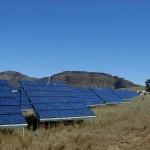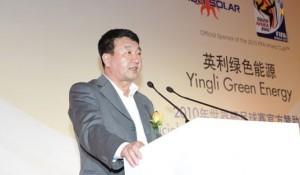Changes to Solar Feed-In Tariffs Universal
New feed-in tariff (Fit) levels for large-scale solar panel installations in the UK came into effect on Monday, but changes to solar financial incentives looks set to be a universal theme.

A solar array in Australia
From 1 August, incentive rates for PV systems over 50kW have been drastically cut by up to 70%, in a move that sees tariffs reduced in favour of smaller solar projects.
However, in Western Australia, the Government has decided to cut its solar scheme, with it claims has become a victim of its own success.
The regional scheme was launched in 2009 and to date more than 65,000 residential installations have been installed. However, as of 1 August, new applicants to the scheme have been suspended, which casts doubt on the future of solar energy for homeowners looking to cut their skyrocketing energy bills by installing the renewable technology.
Thanks to a total capacity cap of 150 megawatts imposed by WA’s Energy Minister Peter Collier, the state’s solar scheme isn’t far off reaching its cap, with figures indicating that it could be as early as September. Speaking to ABC Radio, Mr Collier said households would still be able to pay off the cost of a solar panel system within 10 years through energy savings, even without the Government rebates.
Under the feed-in tariff scheme, WA households were originally set to be paid a 60 cent gross tariff for every kilowatt hour. That figure was eventually changed to a 40 cent net tariff for every extra kilowatt hour fed into the grid, with the state budget in May cutting it even further, to 20 cents for new applicants.
Whilst the WA solar industry has been dealt an unexpected blow by the sudden closure of their feed-in tariff scheme – and other markets such as Italy and Germany have reduced their solar PV subsidies – China is heating up its solar market by launching its first nationwide feed-in tariff incentive scheme for solar installations.
As the world’s largest solar panel manufacturer, China’s new incentive is expected to firmly establish the country as one of the leading purchasers of solar PV systems. A flurry of projects are expected to sign up for the scheme, which will see developers with solar PV projects approved before 1 July or completed by the end of 2011 receive 1.15 yuan (around 11 pence) per kilowatt hour. Projects approved after that date will be paid 1 yuan per kilowatt hour.
“We strongly believe that China will quickly evolve into one of the largest and most important solar markets in the world,” commented Miao Liansheng, chief executive of solar power company Yingli.
Feed-in tariff schemes currently run in more than 50 countries.
Find local, MSC certified Solar Installers
Start your quote
Find local, MSC certified Solar Installers














